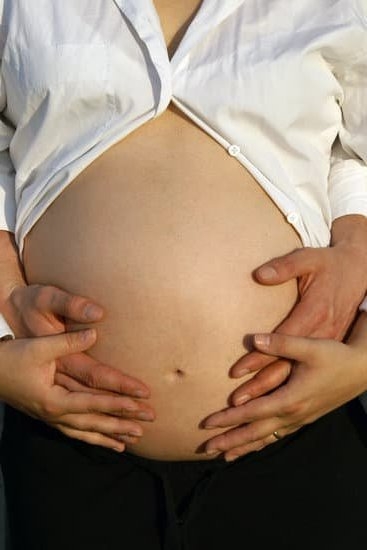Suggestions for Natural Hydration
Being thirsty is not necessarily a sign of early pregnancy, but it is often considered one of the possible symptoms. Therefore, it is important for women to stay hydrated throughout their pregnancy in order to help keep their bodies in balance. Keeping hydrated also helps prevent dehydration, which can lead to headaches, fatigue, dizziness and other symptoms. Here are some natural sources of hydration that can help pregnant women keep their bodies balanced:
• Herbal teas – Herbal teas such as chamomile and ginger are great sources of hydration and provide additional benefits such as calming nerves and improving digestion;
• Juices – A variety of fruits and vegetable juices with added electrolytes or minerals offer great hydration and provide access to vital antioxidants;
• Coconut water – Coconut water is packed with naturally occurring electrolytes, which make it a great source of hydration;
• Smoothies – Blending various fruits, vegetables and other ingredients together helps replenish fluids while providing key vitamins and minerals;
• Slushies – These frozen drinks made from fruit juices or pureed fruit provide a delicious refresher that can combat dehydration on hot days;
• Electrolyte-enhanced waters – Waters enhanced with electrolytes or minerals up the hydrating power.
Benefits of Hydration During Pregnancy
As a woman progresses through pregnancy, it is essential to ensure that she remains well-hydrated. Hydration helps form the amniotic sac, which is vital for protecting the baby while in utero. Adequate hydration also assists with the maintenance of normal body temperature of both the mother and fetus, as well as improving their energy levels.
In addition to providing nourishment for both mom and baby, staying hydrated during pregnancy ensures that vital nutrients are absorbed more efficiently. These nutrients will help support fetal development and its organs as they continue to grow and develop. Furthermore, nutrient absorption can be enhanced further by drinking water throughout the day rather than large amounts at one time.
Finally, staying hydrated helps reduce other uncomfortable symptoms during pregnancy such as swelling in feet or hands, constipation, heartburn, headaches and dizziness. Water helps move food through the digestive system more quickly and reduces bloating by reducing swelling. It is therefore an important part of maintaining a healthy digestive process for pregnant women.
In summary, being adequately hydrated during pregnancy has multiple benefits for mother and baby, such as improved energy levels, increased nutrient absorption and better digestion. As such it is recommended that pregnant women drink plenty of water to stay healthy and comfortable throughout their journey into motherhood.
Risk Factors for Dehydration
Being thirsty is not a sign of early pregnancy and is commonly associated with dehydration. Dehydration occurs when the body loses more fluids than it takes in, leading to an imbalance of electrolytes in the blood. Risk factors for dehydration include increased physical activity, prolonged exposure to heat or cold environments, longer-than-normal episodes of vomiting or diarrhea, some medications that increase urination such as diuretics and laxatives, mental health disorders such as depression or anxiety, serious illnesses requiring hospitalization, aging since older people may be less aware of thirst signals from their bodies and may have difficulty accessing fluid sources. It is important for expectant mothers to drink plenty of fluids to keep their bodies hydrated and nourished during pregnancy. Drinking at least eight 8 oz glasses daily is recommended for adequate hydration.
Solutions for Dehydration
Being dehydrated is quite common during early pregnancy, as it is for many people in general. Symptoms of dehydration include low energy levels, feeling dizzy or light-headed, and feeling excessively thirsty. To ensure that dehydration doesn’t become more serious, pregnant women should take extra care to increase their water intake and make sure they stay well hydrated. There are also a few treatments and dietary considerations that can be made to help improve overall hydration levels in pregnant women.
Consuming foods with high water content helps to naturally provide the body with fluids. High-water fruits, such as melons, oranges, apples and grapes are excellent sources of both hydration and essential vitamins and minerals. Vegetables like cucumbers, lettuce and celery are great options for increasing fluid consumption as well. Supplementing with electrolytes can also be beneficial for those who experience extreme or prolonged dehydration issues; coconut water is a great source of natural electrolytes which can help boost energy levels during pregnancy and address dehydration effectively.
In addition to diet adjustments, mild exercise such as walking can also help regulate fluid balance within the body while having a positive effect on overall health during pregnancy. Drinking plenty of fresh water throughout the day is also a key element in avoiding further dehydration; paying attention to thirst signals will prevent a person from becoming too dehdyarted without consuming enough liquids.
Possible Interactions Between Dehydration and Medication
Being thirsty is not generally considered to be a sign of early pregnancy. Early signs of pregnancy usually include things like breast tenderness, nausea, fatigue, and missed periods. While dehydration may be a symptom of pregnancy, it is unlikely that being thirsty alone would indicate you are pregnant.
Dehydration can occur at any stage of pregnancy and can have serious consequences for both the mother and the unborn baby. The fluid requirements for pregnant women increase to accommodate the increased needs of their growing bodies and extra fluid needs when compared to those who are not pregnant. Dehydration during pregnancy can contribute to preterm labor, gestational hypertension, and other adverse outcomes for both mother and baby.
It is also important to note that dehydration can interact with medications taken during pregnancy in unpredictable ways due to an increased blood concentration of medication or changes in body temperature. For example, anti-inflammatory drugs such as ibuprofen could cause harm to your fetus if taken during early stages of pregnancy when organs are forming. Medicines used for fever reduction with acetaminophen such as Tylenol should also be avoided after week 16 as this has been associated with elevated risks for certain birth defects too. Therefore, pregnant women should ensure they keep hydrated by drinking plenty of water to help prevent negative reactions between dehydration and medication during their pregnancies.

Welcome to my fertility blog. This is a space where I will be sharing my experiences as I navigate through the world of fertility treatments, as well as provide information and resources about fertility and pregnancy.





